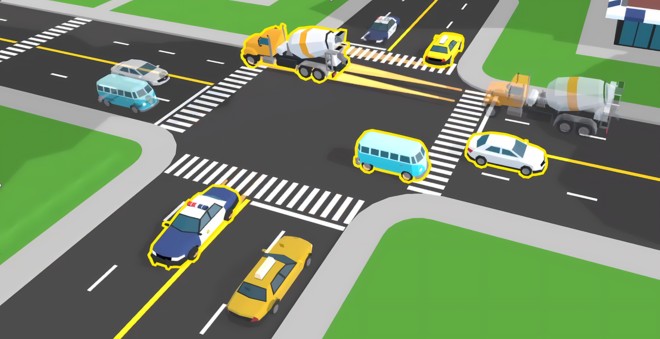Project Immersive Recordings for Game Design in Social Virtual Reality
Prof. Dr. Bernd Fröhlich
M.Sc. Anton Lammert
M.Sc. Gareth Rendle
M.Sc. Adrian Kreskowski
| Degree | Study Programme | Examination Regulations | ECTS |
|---|---|---|---|
| M.Sc. | Computer Science for Digital Media | PV18 and lower | 15 |
| M.Sc. | Computer Science for Digital Media | PV20 | 12 |
| M.Sc. | Computer Science and Media | all | 15 |
| M.Sc. | Human-Computer Interaction | PV17 and lower | 15 |
| M.Sc. | Human-Computer Interaction | PV19 | 12/18 |
Motivation
Traditional 2D video content is widely used for purposes such as entertainment, knowledge transfer, and communication. Despite the broad range of applications and numerous advantages offered by 2D video recordings, there is a limitation that recorded scenes cannot be viewed from arbitrary perspectives. In contrast, immersive recordings, which capture events and interactions in virtual environments, provide the viewer with the opportunity to explore recorded interactions both temporally and spatially and change the actual scenario and events in the recording. For the creation and playback of immersive recordings within immersive VR, we have developed a recording studio.
The goal of this project is to identify the most suitable tools for using immersive recordings for game design in social virtual reality. Our project will include the design of a recording-based VR game, an analysis of existing techniques for editing 2D videos as well as the development and implementation of novel tools that address the following research questions among others:
- How can immersive recordings be altered e.g. to change the path of an object or the position of avatars?
- How to remove a part of the recording and insert a cut instead?
- Which techniques are necessary to manage such transitions in immersive recordings and ensure comprehensibility for the viewer?
Your project work contributes to the evolution of our immersive recording studio and helps to increase the relevance of immersive analytics tools for the virtual reality research and content creation community.
Hardware
You will gain 24/7 access to our well-equipped lab at Schwanseestraße 143. Should pandemic counter measures limit the accessibility of our infrastructure, we will in all cases supply you with state-of-the-art hardware and boost your journey into immersive virtual worlds.
For the duration of the project, each participant will be supplied with an Oculus Quest 2 HMD. If necessary, we will also hand out desktop workstations to meet any additional hardware requirements, which your own machine cannot handle.
Apart from deploying your applications using this hardware, we strongly encourage you to explore related VR applications in the wild!
Requirements
As well as willingness to work in a team, and enthusiasm for learning about multi-user VR application development, you should have the following competencies:
- solid programming / scripting skills (C#, C++, Python or similar)
- affinity for VR and games
Additional advantages are experience in:
- Unity3D development
- 3D modelling
- social VR development
If you are in doubt as to whether you fulfil the requirements, or if you have any further questions regarding the project, we are happy to have a discussion with you at the project fair on 3rd of April.
Assessment
The final assessment of your work will be conducted based on the project contributions of every team member, including:
- Quality and innovation of your practical results
- Active participation in the project during and in between weekly meetings
- Intermediate and final project presentations
- Documentation
If you are interested in social virtual reality and want to dive deeper into the design and development of a game based on immersive recordings - join us!

